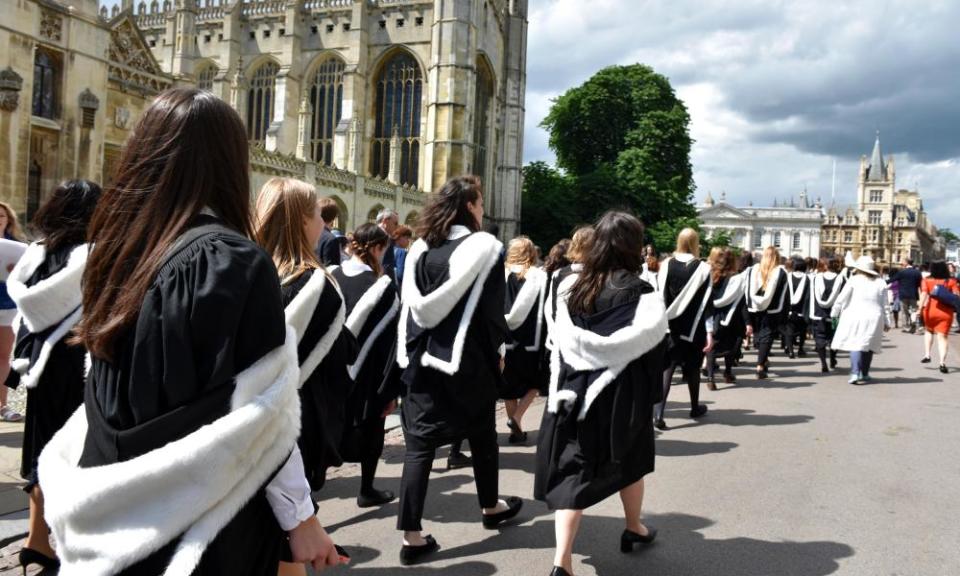One in five students lose money by going to university, IFS finds

One in five students would be financially better off if they skipped higher education, according to groundbreaking research that compares the lifetime earnings of graduates and non-graduates.
Analysis by the Institute for Fiscal Studies found while 80% of former students gained financially from attending university, about 20% earned less than those with similar school results who did not attend, highlighting how some subjects, such as creative arts, offer negative financial returns.
The IFS research – which uses tax data to measure the earnings of those who went to university from the mid-90s onwards – found that after accounting for taxes and student loans, men gained on average £130,000 and women £100,000 over their careers, compared with their peers who didn’t enter higher education.
As well as the total “graduate premium” being different between the sexes, it is also unevenly distributed over time, with women reaching a glass ceiling on earnings growth in their 30s and 40s, even among Oxbridge graduates. The premium also differed depending on the subject studied.
Related: UK universities face pressure to reform admissions process
The report comes as the government in England is applying additional scrutiny to universities and outcomes for graduates, with some ministers looking to restrict the numbers taking so-called “low-value” courses.
Overall, the IFS found the government benefited from extra tax revenue and national insurance contributions of £110,000 per man and £30,000 per woman, over and above the costs of study to the government.
“The exchequer gains a lot on average from higher education, despite the high costs of writing off unpaid student loans. That is mainly because high-earning graduates go on to pay an awful lot of tax,” said Ben Waltmann, an IFS economist and co-author of the report.
“But this analysis also shows that the government makes an overall loss on financing the degrees of nearly half of all graduates. These losses are concentrated amongst those studying certain subjects.
“For creative arts, for example, the losses are substantial. This need not mean that the government is misallocating funds but it is important to be aware of the costs involved.”
Michelle Donelan, the universities minister, said that while the benefits of higher education included “unquantifiable experiences and friendships,” she was still concerned about value for money.
“It is no surprise our universities attract students from all over the world. However, that prestige is built on quality and my role is to work with the regulator to safeguard that, while ensuring students and the taxpayer are getting the value they would expect for their investment,” Donelan said.
The Department for Education said the earnings data would define the benefits of higher education and “help students of all ages make smart choices about their future”.
However, Jo Grady, the general secretary of the University and College Union, said: “It is vital to recognise that education is about much more than just financial benefit. Focussing on future income following university ignores the wider benefits that education brings to individuals and to society.”
Related: Call for 'first-in-family allowance' to cover year's tuition fees
The data also revealed a chasm between men and women in earnings, with the top 10% of males who studied economics or medicine earning on average £500,000 more than their peers, while women studying the same subjects had average gains of just £250,000.
But while men’s earnings rocketed up from the age of 30, women’s earnings growth was far lower, with childbearing and family formation the most likely factor. The IFS said women “see little difference in average returns” across different universities, while male graduates who attended Oxbridge and Russell Group universities earned more than their peers at other institutions.
Jack Britton, another co-author of the report, said: “This work highlights how important the 30s are for graduate men. Rapid earnings growth of male graduates in this period has a large positive impact on their average return to higher education such that three quarters of men end up better off as a result of having done a degree.”
The new research is based on annual incomes and fails to take account of hours worked, with non-graduates working longer hours for the same income, according to previous research.

